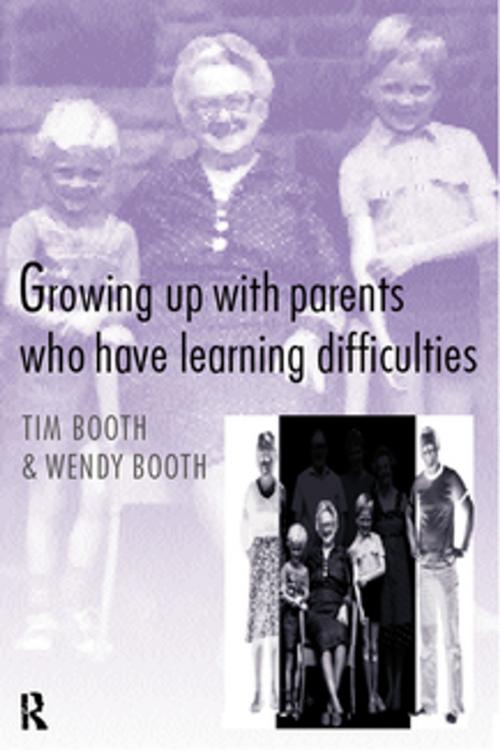Growing up with Parents who have Learning Difficulties
Nonfiction, Health & Well Being, Medical, Patient Care, Health Care Delivery, Social & Cultural Studies, Social Science, Social Work, Allied Health Services| Author: | Tim Booth, Wendy Booth | ISBN: | 9781134706969 |
| Publisher: | Taylor and Francis | Publication: | August 10, 2005 |
| Imprint: | Routledge | Language: | English |
| Author: | Tim Booth, Wendy Booth |
| ISBN: | 9781134706969 |
| Publisher: | Taylor and Francis |
| Publication: | August 10, 2005 |
| Imprint: | Routledge |
| Language: | English |
Growing up with Parents who have Learning Difficulties uses a life-story approach to present new evidence about how children from such families manage the transition to adulthood, and about the longer-term outcomes of such an upbringing. It offers a view of parental competence as a social attribute rather than an individual skill, assessing the implications for institutional policies and practices. The authors address the notion of children having to parent their disabled parents and argue for a shift in emphasis from protecting children to supporting families.
This innovative book provides a fresh approach to a subject rife with prejudice and challenges us to think again about many taken-for-granted ideas about the process of parenting and the needs of children. It also demonstrates the power of narrative research and its capacity for bringing alive people's experience in a way that enables us to better understand their lives.
Growing up with Parents who have Learning Difficulties uses a life-story approach to present new evidence about how children from such families manage the transition to adulthood, and about the longer-term outcomes of such an upbringing. It offers a view of parental competence as a social attribute rather than an individual skill, assessing the implications for institutional policies and practices. The authors address the notion of children having to parent their disabled parents and argue for a shift in emphasis from protecting children to supporting families.
This innovative book provides a fresh approach to a subject rife with prejudice and challenges us to think again about many taken-for-granted ideas about the process of parenting and the needs of children. It also demonstrates the power of narrative research and its capacity for bringing alive people's experience in a way that enables us to better understand their lives.















